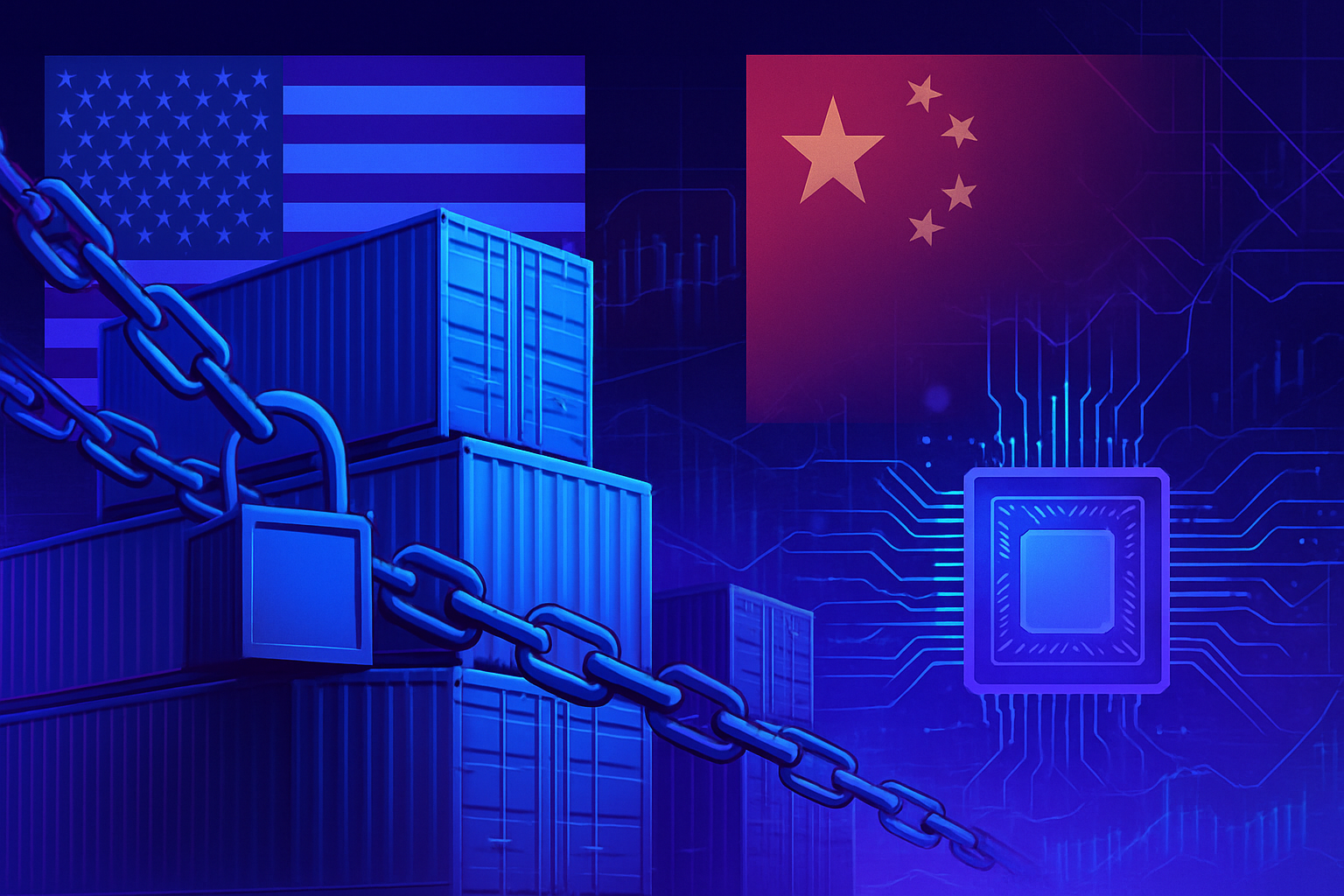Washington intensifies its actions to limit China’s access to advanced technologies. The recent decision to impose restrictions on Nvidia shipments to Malaysia and Thailand reflects the rising geopolitical tensions. These measures are part of a framework aimed at preventing the diversion of semiconductor technology to Beijing, which is already targeted by an embargo on direct sales of the most powerful processors. American and allied companies will benefit from temporary exemptions, but concerns remain about the future of global technological dominance.
Strengthening American export restrictions
Washington is preparing to impose new restrictions on the export of artificial intelligence chips made by companies like Nvidia to Malaysia and Thailand. This move aims to limit access to advanced semiconductor technologies, particularly for Chinese companies, through these Southeast Asian countries. Discussions surrounding this measure reveal a clear intent from the United States to curb the indirect transfer of sensitive technologies to China.
Context of sanctions imposed by the United States
Following the ban on direct sales of the most powerful AI processors from Nvidia to China, this new regulation seeks to prevent any diversion of chips via third-party actors. A draft regulation from the U.S. Department of Commerce specifically targets these nations. Sources involved in the discussions indicate that this regulation is still under review and may undergo some modifications before its official adoption.
Implementation module and potential exceptions
U.S. authorities are considering a phased implementation system for the restrictions, in order to limit disruption for companies heavily engaged in Malaysia and Thailand. U.S.-based companies, as well as those from allied countries, may continue to ship AI chips for several months after the publication of the new rule, without needing to obtain a license. Additional exceptions are also expected to ensure the continuity of the supply chain.
Concerns regarding Southeast Asia
Global technology companies are ramping up their investments in Southeast Asia, making the region a focal point of Washington’s concerns. Oracle Corp. is rapidly expanding its data center footprint in Malaysia, while Alphabet, Microsoft, and Amazon Web Services are announcing their new initiatives in Thailand. The consolidation of technological infrastructure in this region raises questions about the potential implications for controlling sensitive technologies.
Position of the U.S. administration
Secretary Howard Lutnick stated during a hearing before lawmakers that the United States will allow its allies to acquire AI chips. This is provided that their use is managed by a data center operated by U.S. companies and controlled by a U.S.-approved cloud provider. This privileged position underscores an approach aimed at maintaining American technology dominance in the global market.
Nvidia’s reaction and the risk of over-regulation
Nvidia’s CEO, Jensen Huang, expressed his concern over excessive regulation, warning that such an approach could allow China to gain a foothold in AI markets. He maintains that, according to the evidence, there is no proof of AI chips being diverted to China thus far. Such a dynamic could significantly transform the technological landscape in Asia.
Implications for the technology market
Concerns about the possibility of exported chips ending up in China continue to alarm U.S. officials. The potential diversion of advanced technologies could favor Chinese AI companies by facilitating their access to remote data centers outside of China. Such a situation could truly redefine competition in the global artificial intelligence market, especially with recent examples like the massive shipment of Huawei’s Ascend 910C despite U.S. restrictions.
Teachers are also adopting AI solutions to enhance efficiency, although restrictions for students continue to fuel ethical debates. Investors, as well as tech giants, are keeping a close watch on regulatory developments that may impact their operations and expansion strategies.
Conclusion on regional dynamics
The regional dynamics in Southeast Asia deserve close observation, considering the risks posed by potential regulations. Technology companies must navigate a complex landscape where export restrictions could easily alter supply chains. Recent developments highlight the strategic importance of this region for global technology and the underlying stakes that come with it.
Frequently asked questions about Nvidia’s export restrictions to Malaysia and Thailand
What are the new export restrictions imposed by the Trump administration on artificial intelligence chips?
The new restrictions aim to limit the export of AI chips made by Nvidia to Malaysia and Thailand, in order to prevent China from indirectly accessing this advanced technology.
Why are these restrictions particularly concerning Malaysia and Thailand?
These countries are considered potential transit points for advanced technologies, allowing chips to reach China, despite the direct sales ban to that country.
What are the impacts of these restrictions on North American companies operating in Malaysia and Thailand?
U.S.-based companies and those from allied countries will be able to continue shipping AI chips for several months after the publication of these new rules, with exemptions anticipated to minimize disruptions.
What is the current position of Washington on the sale of AI chips to its allies?
Washington permits its allies to purchase AI chips on the condition that their utilization is managed by data centers operated by U.S. companies and controlled by approved cloud providers.
How will these restrictions affect the semiconductor industry in Southeast Asia?
This could impact supply chains, as several semiconductor companies rely on manufacturing infrastructure in Southeast Asia, particularly for chip packaging.
Are there any exceptions anticipated in the enforcement of the new restrictions?
Yes, exceptions are expected to ensure the continuity of supply chains, allowing companies to maintain operations while complying with the new rules.
What is the main concern of U.S. officials regarding the export of these chips?
Officials are worried that even if the chips are exported legally, they could be diverted to China or used in ways that indirectly benefit Chinese companies.
What actions has Nvidia already taken regarding the diversion of its chips to China?
Nvidia has stated that there is no evidence of its AI chips being diverted to China, but warned that excessive regulations could harm its position in the AI market.






